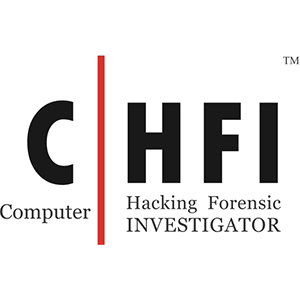Palo Alto Training – Learn Palo Alto Firewalls in 2025

Introduction: The Certified Hacking Forensic Investigator (CHFI) is an internationally recognized certification that focuses on the skills necessary to conduct digital investigations and investigate cybercrimes. This certification is essential not only for cybersecurity professionals but also for organizations seeking to comply with data security standards and regulations. The role of the CHFI in regulatory compliance […]

Introduction:
The Certified Hacking Forensic Investigator (CHFI) is an internationally recognized certification that focuses on the skills necessary to conduct digital investigations and investigate cybercrimes. This certification is essential not only for cybersecurity professionals but also for organizations seeking to comply with data security standards and regulations. The role of the CHFI in regulatory compliance is crucial to ensuring that businesses meet legal, security, and data protection requirements.
In the face of increasing cyber threats, many laws and regulations have been implemented to protect sensitive data at both national and international levels. Regulations such as the General Data Protection Regulation (GDPR) in Europe, the Health Insurance Portability and Accountability Act (HIPAA) in the United States, and the Sarbanes-Oxley Act (SOX) influence how organizations must handle, protect, and audit sensitive data.
These regulations require businesses to take proactive steps to secure their systems, monitor access, detect suspicious activity, and ensure traceability of sensitive data. This is where the CHFI comes in. As a qualified professional, the CHFI plays a key role in ensuring companies meet regulatory compliance standards.
The Role of CHFI in Digital Investigations
One of the primary roles of a CHFI is to conduct digital investigations after a security incident, whether it’s a cyberattack, data breach, or legal violation. Using advanced data recovery techniques, evidence collection, and forensic analysis, the CHFI helps reconstruct the events that occurred during an intrusion. This not only helps understand how the attack took place but also provides the necessary evidence to demonstrate compliance with regulatory requirements.
Digital investigations are particularly useful to ensure that all steps of the incident were properly followed and documented, which is essential for compliance audits. A well-documented report proves that the business reacted appropriately and complied with security and confidentiality obligations.
Contribution to Preventing Data Breaches
The CHFI’s role is not limited to reacting after an attack; they also play a preventive role in protecting sensitive data. With advanced skills in vulnerability analysis, the CHFI can identify weaknesses in an organization’s IT systems before an attack occurs. For example, by identifying flaws in identity management systems or poorly secured databases, the CHFI can recommend corrective actions to prevent breaches.
In a regulatory environment, companies must demonstrate that they have taken steps to prevent breaches. By advising on appropriate security strategies and conducting penetration testing, the CHFI helps organizations comply with preventive security requirements.
Writing Reports that Meet Legal Standards
Another crucial aspect of the CHFI’s role in regulatory compliance is report writing. When a business faces a cyberattack or data breach, it must provide a detailed report to the relevant authorities, as well as to its clients and partners, if necessary. Reports written by a CHFI are essential as they must meet legal and regulatory criteria for documenting security incidents.
These reports must be not only accurate and clear but also compliant with regulations such as GDPR. For instance, GDPR stipulates that a business must notify the relevant authority of a data breach within 72 hours if it poses a risk to the rights and freedoms of individuals. The CHFI, with their specialized training, is capable of writing these reports while ensuring compliance with legal standards.
Ongoing Training and Awareness
The CHFI certification also includes training on how to raise employee awareness of cybersecurity risks. Regulatory compliance relies not only on technical tools and procedures but also on the involvement of all employees. A CHFI can play a role in organizing training sessions on managing sensitive information, detecting phishing attempts, and the importance of adhering to security protocols. This helps create a security culture within the organization and minimizes the risks of human error, which are often the cause of data breaches.
Conclusion:
The role of the Certified Hacking Forensic Investigator in regulatory compliance is multifaceted. From preventing data breaches and managing digital investigations to writing reports that meet legal requirements, the CHFI is a key player in managing cybersecurity risks. By enhancing system security, training staff, and ensuring appropriate responses to incidents, they help businesses comply with standards and protect sensitive data from cyberattacks.
Get certified with industry-leading cybersecurity certifications from EC-Council, PECB, Palo Alto Networks, and more.

Learn from world-class instructors Collaborate with top professionals Advanced training...

The CEH is the world's leading cybersecurity certification, recognized by...

Onsite training course Led by an instructor Interactive sessions

Asynchronous, self-study environment Video-streaming format Flexible learning schedule
Adding {{itemName}} to cart
Added {{itemName}} to cart

